I’m a sucker for the National Days Calendar, and I was intrigued to find out that today is National Navajo Code Talkers Day. I grew up visiting Navajo Country, aka Gallup, New Mexico, but the Navajo Code Talkers didn’t really come into my awareness until I saw a statue one summer when I was older at Window Rock, Arizona. It paid tribute to the men whose language (which is difficult and unwritten) became the only code in modern warfare to be unbreakable. The gift of language made this group of men vital to the success of our country in World War II. But they were sworn to secrecy, even from family members, for over two decades. Their existence and work was finally declassified in 1968, but most didn’t receive true recognition from our country until congress passed a law in 2000 that would eventually lead to the presentation of a gold Medal of Honor to each of the original 29 Navajo Code Talkers and a silver Medal of Honor for the subsequent Code Talkers.
These men went years without telling of their role in the war effort. But books have now been written and movies made that tell their story. Without the declassification we would never have known the importance that this language of the largest Native American nation had on our world. I was able to visit an exhibit in Gallup on my recent trip that celebrated these men and opened up their work and stories for me.
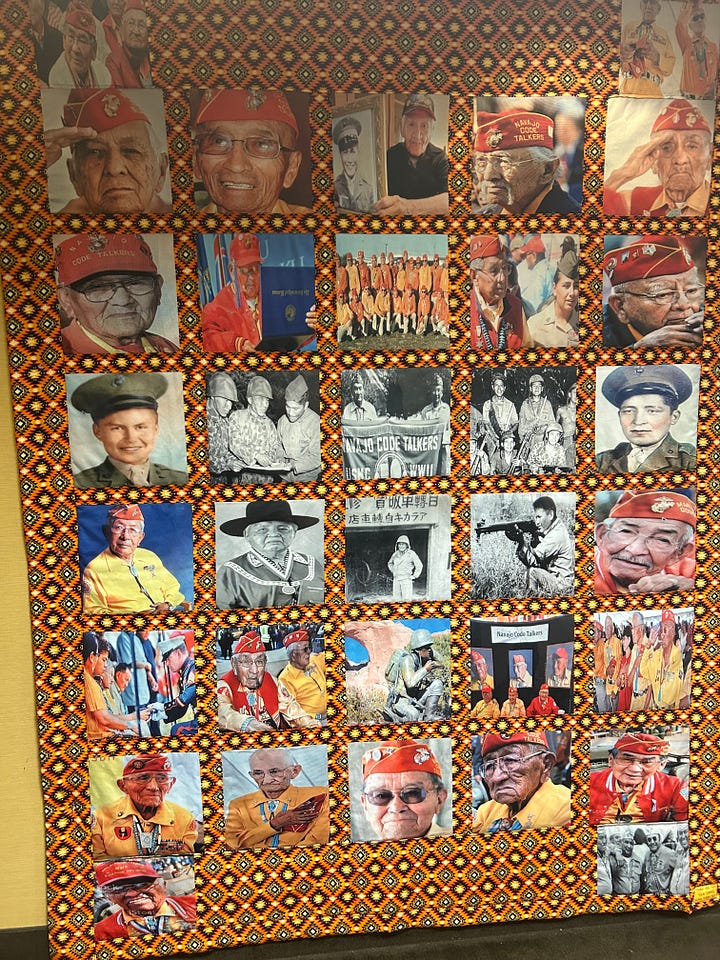
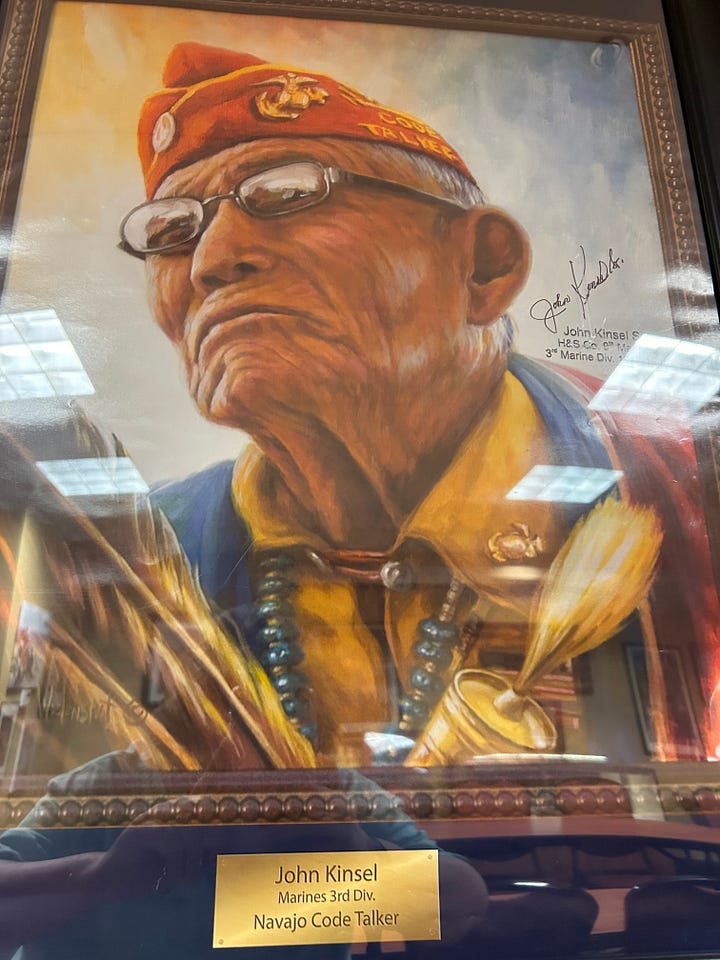


These Navajo Code Talkers (and those recognized from additional tribes) have now told their stories over and over so that others might know. And this is so important, especially now, as only three Navajo Code Talkers are still alive today, with the oldest being 107. Being real, these voices will eventually die. But the stories and the lessons don’t have to go silent. The language can be shared - and it must if it is to continue.
On this same trip I made my way to California and visited the Agua Caliente Cultural Museum which celebrates the history, culture, and difficult journey of the Agua Caliente Band of Cahuilla Indians. Located right in the heart of downtown Palm Springs, excavations have recovered artifacts dating back over 8,000 years. And they fought hard to regain their land, honor the story of their tribe, and ensure its future. One of the voices heard in an exhibit tells of the regret over the decision to burn down the ceremonial house, and the songs that ceased to be sung because of that decision. After years of not hearing the songs, there has been an effort to reclaim those words and sounds to have a more complete picture of the culture and story of this tribe. These words matter to an understanding of who these people have been and will continue to be for future generations.
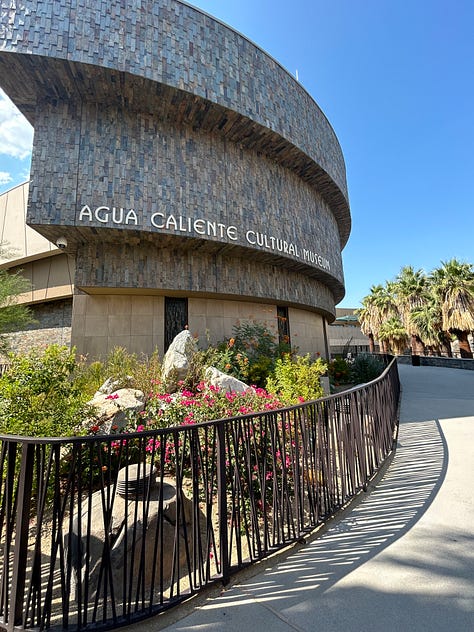
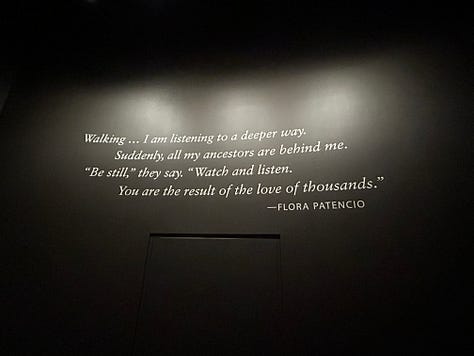

This all gave me pause in reflecting on my faith. I am only where I am in my faith journey because people told the story. They told the story of the creation of God’s world. They told the story of the tower of Babel which allowed languages to be dispersed around the world as was God’s plan. They sang to me “Tell Me the Stories of Jesus,” and told me about his amazing love…and showed me, too. They celebrated Pentecost and told me how important it was to keep telling the story and being part of a faith community. And hopefully, I have done a bit of sharing as well.
My people, hear my teaching;
listen to the words of my mouth.
I will open my mouth with a parable;
I will utter hidden things, things from of old—
things we have heard and known,
things our ancestors have told us.
We will not hide them from their descendants;
we will tell the next generation
the praiseworthy deeds of the Lord,
his power, and the wonders he has done.Psalm 78:1-4
I appreciate that these different tribes/nations with unique languages and stories have reminded me of the value of telling the stories. This journey across I-40 started as a way to be open to different cultures, to learn about God’s people in a variety of places, and to see what might be revealed about my faith while on the move. Encountering the stories and languages of these Native American nations and tribes has given me some hard gut-wrenching moments seeing the brutal realities of what arrogance and racism can do to harm and almost wipe out entire cultures. But it has also revealed a richness of heritage that persevered and preserved, honoring the ancient past while living vibrantly in the now and with hope for a bright future.
This was all made even more apparent when I learned that the Agua Caliente people do not have a word for “goodbye.” They live in hope that they will see one another again, whether here on Earth or beyond. So they offer a word that translates “Go in a good way.” What if, on my faith journey, I went from place to place in a good way and offered that same exclamation to others? Honestly, that is what Jesus calls me to do, knowing we will all see each other again. May we all “Go in a good way,” moving in faith as we tell the story of Jesus and his love.
Learn more about the Navajo Code Talkers: National Archives Article and Gallup Museum
Learn more about the Agua Caliente People: www.aguacaliente.org and Agua Caliente Cultural Plaza




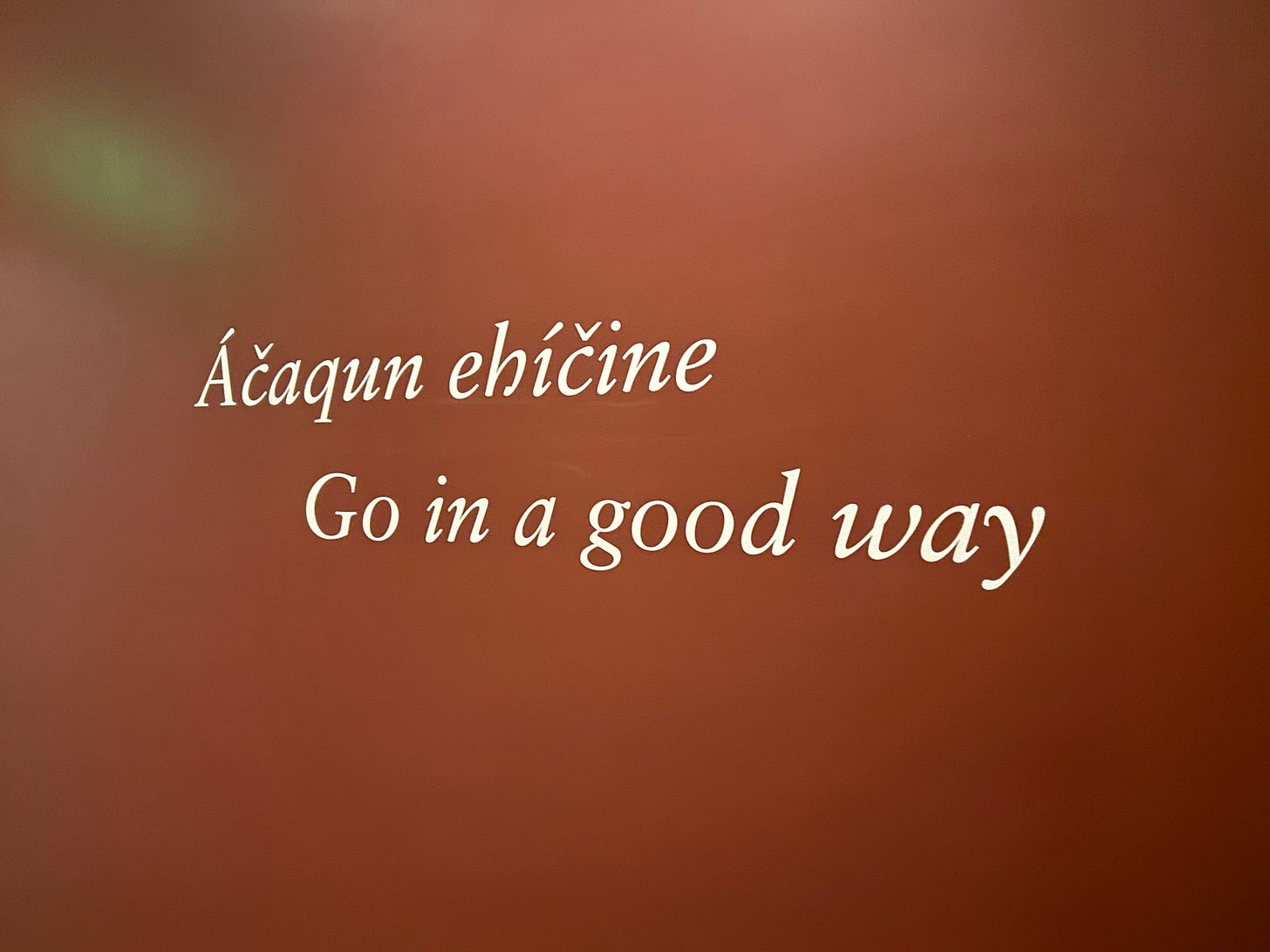
Important message for us all! Thanks for sharing.
Very nicely done! I really like the "Go in a good way" concept. Thanks for sharing, Jenny.